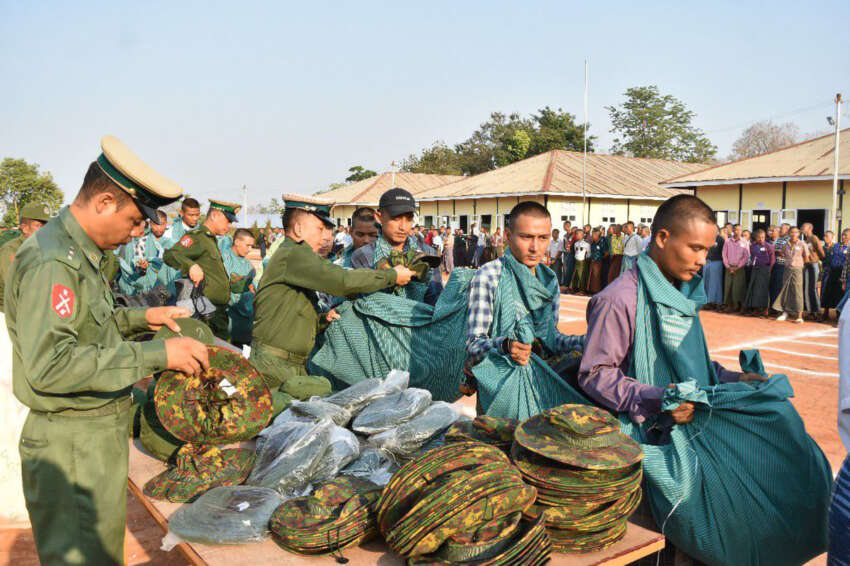
Military sources have revealed that due to the high number of new recruits deserting from battles in the Ayeyarwady Region, the military is secretly contacting their families and threatening to kill family members if the soldiers do not return to their battalions. The new recruits, who were deployed to frontline positions in Thabaung, Yegyi, and Lemyethna townships, have been failing to return to their rear bases during unit rotations, with desertion rates reportedly increasing significantly.
Battalion commanders are facing difficulties in reporting casualty and personnel numbers to their superiors, as most of their new recruits are now listed as missing. The Regional Military Commander has been pressuring battalion commanders to produce accurate personnel reports. The rotation of new recruits is being conducted at Infantry Battalion 271, where battalion commanders have been secretly reaching out to the families of deserters, demanding they convince their sons to return to service. The military has reportedly issued explicit threats of harm to family members if they fail to secure the return of the deserting soldiers.
In the Ayeyarwady Region, the military has been forced to abandon control of numerous areas, leading to a restructuring of the Southwest Military Command. The command currently operates with one Military Operations Commander, two Regional Commanders, one Deputy Regional Commander, and three Strategic Commanders. Additional reinforcements have been deployed from other regional commands, including forces from Light Infantry Divisions 11, 66, 77, and 101, in attempts to reclaim lost territory. However, these efforts have been hampered by the continuing desertion of new recruits and general manpower shortages. The military’s aggressive approach to dealing with deserters and their families reflects the increasing pressure on command structures to maintain fighting forces in the face of widespread resistance and low morale among troops.



